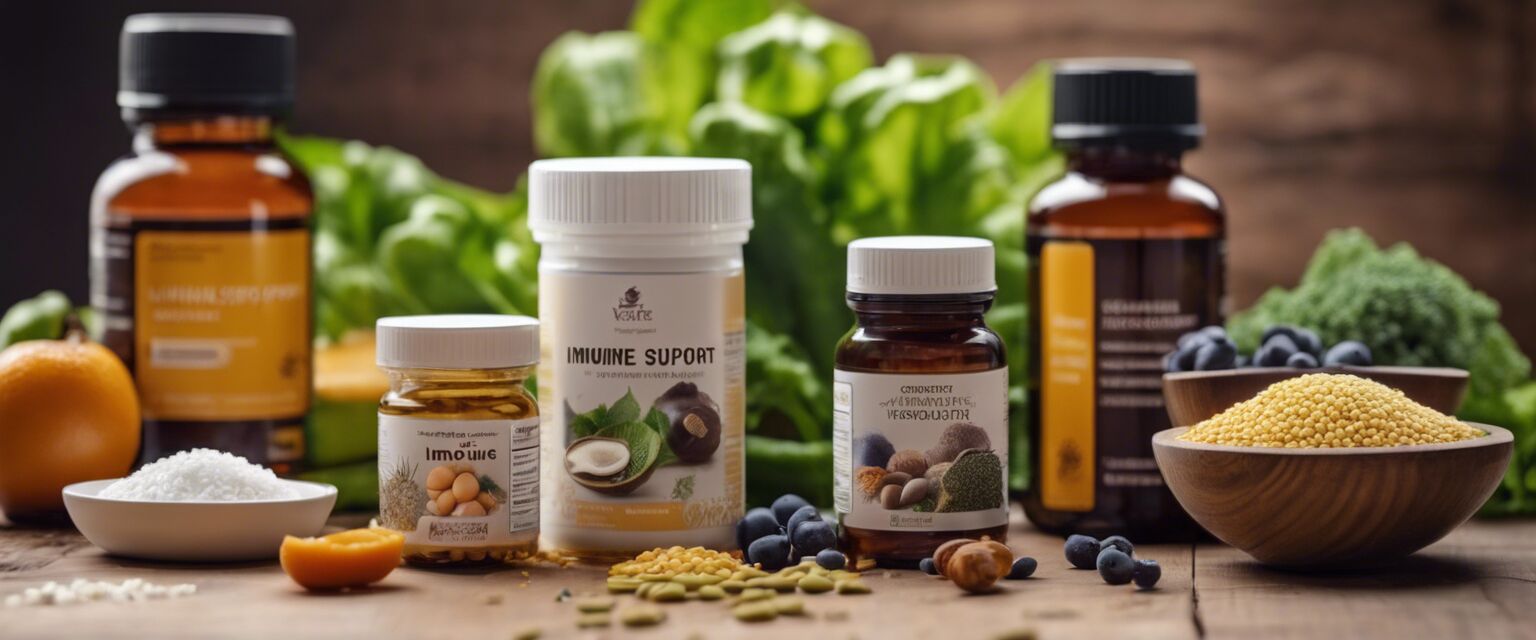
Elderly Immune System Support
Key Takeaways
- The elderly may experience a decline in immune function.
- Supplementing with antioxidants, vitamins, and minerals can help support immune health.
- Regular physical activity and a balanced diet complement supplement use.
- Consulting with a healthcare provider before starting any supplement regimen is advisable.
As we age, our immune system can weaken, making us more susceptible to infections and illnesses. Elderly individuals often need additional support to maintain their immune health. This article explores various supplements designed specifically for this purpose, their benefits, and how they can contribute to overall well-being.
Understanding the Immune System in the Elderly
The immune system is a complex network of cells, tissues, and organs that work together to defend the body against harmful invaders. As we age, this system can become less efficient due to various factors, including:
- Decreased production of immune cells.
- Chronic health conditions.
- Changes in the body's response to vaccines.
Essential Supplements for Immune Support
There are several types of supplements that can help boost the immune system in the elderly. Below is a breakdown of the most popular categories:
| Supplement Type | Common Ingredients | Potential Benefits |
|---|---|---|
| Antioxidants | Vitamin C, Vitamin E, Selenium | Help combat oxidative stress and support overall immune function. |
| Herbal Supplements | Echinacea, Elderberry | May support immune response and overall health. |
| Vitamins | Vitamin D, Vitamin B6 | Important for immune regulation and maintaining health. |
| Minerals | Zinc, Magnesium | Essential for immune cell function and overall health. |
| Probiotics | Lactobacillus, Bifidobacterium | Support gut health, which is linked to immune health. |
Antioxidants
Antioxidants are vital in protecting the body from damage caused by free radicals. Elderly individuals can benefit from:
Tips for Choosing Antioxidants
- Look for supplements with a combination of Vitamin C and E.
- Choose products that contain natural sources of antioxidants.
- Consider the bioavailability of the antioxidant.

Herbal Supplements
Herbs like Echinacea and Elderberry have been traditionally used to support immune health. Hereâs what to consider:
Pros
- May enhance immune response.
- Often have additional health benefits.
Cons
- Effects can vary between individuals.
- Some may interact with medications.
Vitamins and Minerals
Essential vitamins like Vitamin D and minerals such as Zinc play crucial roles in immune function. Important considerations include:
| Vitamin/Mineral | Recommended Daily Allowance (RDA) | Food Sources |
|---|---|---|
| Vitamin D | 800 IU | Fatty fish, fortified dairy products |
| Zinc | 11 mg | Meat, shellfish, legumes |
Probiotics
Probiotics contribute to a healthy gut microbiome, which is essential for a robust immune system. Consider the following:
- Choose multi-strain probiotic supplements for broader benefits.
- Look for products that contain at least 1 billion CFU (colony-forming units).

Incorporating Supplements into Daily Life
Integrating supplements into a daily routine can be beneficial, but it should accompany a healthy lifestyle:
- Maintain a balanced diet rich in fruits, vegetables, and whole grains.
- Engage in regular physical activity to enhance overall health.
- Stay hydrated and get ample rest.
Consulting with Healthcare Providers
Before starting any new supplement, it is critical for elderly individuals to consult with healthcare providers. This helps to:
- Ensure safety and suitability of supplements.
- Avoid potential interactions with existing medications.
- Receive personalized recommendations based on health needs.
Conclusion
Supporting the immune system in the elderly is crucial for overall health and well-being. By incorporating the right supplements, alongside a healthy lifestyle, elderly individuals can enhance their immune response and maintain vitality. Always consult with a healthcare provider to determine the best approach tailored to individual health needs.
Pros
- Helps maintain immune health.
- Supports overall well-being.
Cons
- Not a substitute for a healthy lifestyle.
- Effectiveness can vary.
Further Reading
For more information on enhancing immune health, check out our other articles:





